Reconnect with friends, colleagues, and mentors at Harvard Griffin GSAS Alumni Day on Saturday, April 18, 2026. This annual event brings together alumni, faculty, students, and friends to participate in conversations with some of the world’s leading scholars, engage with alumni across various disciplines, and hear from Dean Emma Dench. Between talks and activities, network with your fellow alumni and recapture the magic of being back on campus with friends, both old and new.
Full program and session details will be available in late February. Registration will open in early March 2026.
Registration Fees
- Harvard Griffin GSAS Alumni and Guests: $65
- Recent Harvard Griffin GSAS Graduate (’21-’24): $25
- 2025 Harvard Griffin GSAS Graduate: Free
Tentative Schedule
Saturday, April 18
Events will take place at Emerson Hall and the Harvard Faculty Club in Cambridge. All times are in Eastern Time.
8:30 a.m.–3:30 p.m.
Check-In and Registration
8:30 a.m.
Continental Breakfast
Harvard Faculty Club
9:45 a.m.–10:30 a.m.
Welcome and Conversation with the Dean
Emerson Hall
10:30 a.m.–11:45 a.m.
Keynote Panel: The Transformative Impact of AI on Medicine, Education, and the Economy
Jason Furman, PhD ’04, Aetna Professor of the Practice of Economic Policy, jointly at Harvard Kennedy School (HKS) and the Department of Economics at Harvard University
Teddy Svoronos, PhD ’16, Senior Lecturer in Public Policy at the Harvard Kennedy School; co-Founder of Teachly and PingPong
Marinka Zitnik, Associate Professor in the Department of Biomedical Informatics at Harvard Medical School, Associate Faculty at the Kempner Institute for the Study of Natural and Artificial Intelligence at Harvard University, Associate Member at the Broad Institute of MIT and Harvard, and Affiliated Faculty at the Harvard Data Science Initiative.
Emerson Hall
11:45 a.m.
Celebrating Milestone Anniversaries
Honoring alumni celebrating 50, 25, or 10 years since their graduation from Harvard Griffin GSAS.
Emerson Hall
Noon–1:30 p.m.
Lunch
Harvard Faculty Club
Afternoon Sessions with Harvard Faculty and Harvard Griffin GSAS Alumni
1:45 p.m.–3:00 p.m.
Session 1A: Opportunities for Quantum Technologies in an Imperfect World
Evelyn Hu, Tarr-Coyne Professor of Applied Physics and of Electrical Engineering, Harvard University; co-Director of the Harvard Quantum Initiative
This interactive talk will provide a few insights into Hu's research program, as a window into some of the quantum activities here at Harvard. Interestingly, much of Hu's research explores the possibilities of defective materials that, strangely enough, can serve as the “information bearers” of new quantum technologies.
Emerson Hall
Session 1B: Can Liberal Democracy Survive the Second "Great Transformation"?
Grzegorz Ekiert, PhD ’91, Laurence A. Tisch Professor of Government at Harvard University and senior scholar at the Harvard Academy for International and Area Studies
3:15 p.m.–4:30 p.m.
Session 2A: Reweaving ourselves: Learning to lead with love and power
Rebecca Henderson, PhD ’88, John and Natty McArthur University Professor, Harvard University
What kind of world could we build if we let ourselves believe that humans are not only selfish, greedy, and status-seeking but also cooperative, kind, and joyful? If we prioritized learning to build relationships—with ourselves, with each other, and with the natural world, in addition to implementing technical fixes and policy solutions? In this talk, Henderson will explore what it might mean to lead with love and power—and why it might make all the difference.
Session 2B
Speaker and session details forthcoming
Emerson Hall
4:45 p.m.–6:00 p.m.
Closing Reception
Harvard Faculty Club
Questions about this event? Please contact the Harvard Griffin GSAS Office of Alumni Relations.
Harvard University and the Graduate School Alumni Association encourage people with disabilities to participate in their programs and activities. If you anticipate needing any type of accommodation or have questions about the physical access provided, please let us know in advance by emailing gsaa@fas.harvard.edu.
Locations & Parking
Parking for Alumni Day is available at the Broadway Garage located at 7 Felton St, Cambridge, MA 02138. Please inform the parking attendant that you are attending the Harvard Griffin GSAS Alumni Day event.
Emerson Hall
29 Quincy St, Cambridge, MA 02138
Harvard Faculty Club
20 Quincy St, Cambridge, MA 02138
Speakers
(in order of appearance on schedule, some bios still forthcoming)
Emma Dench
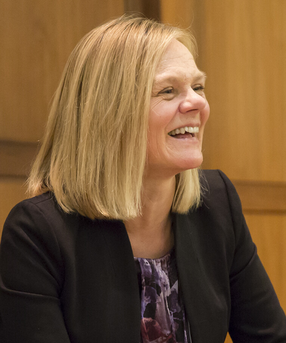
Emma Dench is the Dean of the Harvard Kenneth C. Griffin Graduate School of Arts and Sciences, and McLean Professor of Ancient and Modern History and of the Classics. A Roman historian and classicist who holds appointments in the Departments of the Classics and of History, Dench was appointed dean in 2018, after serving as interim dean the year prior.
During her term as dean, Dench has worked to enhance the quality of the graduate student academic and personal experience. The Advising Project (TAP), which she spearheaded, works to enhance the advising of graduate students by identifying and communicating best practices in advising and offering mentoring training to faculty and mentoring-up training to students. Dench expanded on this work by engaging a group of faculty in the GSAS Admissions and Graduate Education working group, which considered what PhD education should look like in the 21st century. Harvard Griffin GSAS is now implementing their recommendations. Dench also makes student wellbeing a focus of her deanship and chaired the working group for graduate and professional students as part of the University’s task force on managing student mental health.
Since joining Harvard in 2007, Dench has earned a Harvard College Professorship in recognition of “outstanding contributions to undergraduate teaching, mentoring, and advising,” a John R. Marquand Award for Exceptional Advising and Counseling, and an Everett Mendelsohn Excellence in Mentoring Award for her mentorship of graduate students. Regarding her academic research, Dench’s most recent book, Empire and Political Cultures in the Roman World, reviews a hundred years of scholarship to identify how empire transformed the Roman world, and advances a new theory of how the empire worked and was experienced. She has authored From Barbarians to New Men: Greek, Roman, and Modern Perceptions of Peoples from the Central Apennines, and Romulus’ Asylum: Roman Identities from the Age of Alexander to the Age of Hadrian. Dench has also published articles and reviews on many aspects of classical antiquity, including pre-Roman and Roman Italy, the workings of the Roman Empire and identity. Her current research explores the idea and practice of Barbarian identity, as well as divine interaction in the Roman imperial world, and life and leadership lessons from Rome.
Dench grew up near Stratford-upon-Avon and studied at Wadham College where she was awarded a double first in Classics. She also studied at St. Hugh’s College, Oxford, where she obtained her DPhil in Ancient History. She has taught classics and ancient history at Birbeck College, University of London, she served as a Rome Scholar and a Hugh Last Fellow at the British School at Rome, and she was a member of the School of Historical Studies at the Institute for Advanced Study. She was also a visiting professor of the Classics and of History at Harvard, a Loeb Classical Library Foundation Fellow, and a Visiting Professor of Business Administration at the Harvard Business School. In 2016, she delivered the prestigious JH Gray Lectures at the University of Cambridge.
Jason Furman
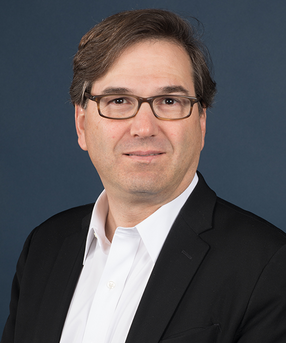
Jason Furman, PhD ’04, is the Aetna Professor of the Practice of Economic Policy jointly at Harvard Kennedy School (HKS) and the Department of Economics at Harvard University. He is also a nonresident senior fellow at the Peterson Institute for International Economics. Furman engages in public policy through research, writing, and teaching in a wide range of areas, including US and international macroeconomics, fiscal policy, labor markets, and competition policy. He co- teaches Ec10 “Principles of Economics,” the largest course at Harvard University.
Previously, Furman served for eight years as a top economic adviser to President Obama, including as the 28th Chairman of the Council of Economic Advisers from August 2013 to January 2017, serving as both President Obama’s chief economist and a member of the cabinet. During this time, Furman played a major role in most of the major economic policies of the Obama Administration. Furman also served under President Clinton.
Furman is a member of numerous organizations, including the Council on Foreign Relations, the Group of Thirty, and the Economic Strategy Group. He also serves as a Trustee of the Russell Sage Foundation and on the advisory boards for the Brookings Papers on Economic Activity, the Bund Summit, the Hamilton Project, and the Washington Center for Equitable Growth.
In addition to articles in scholarly journals and periodicals, Furman is a regular contributor to the New York Times and Project Syndicate and the editor of two books on economic policy. Furman holds a PhD in economics from Harvard University.
Teddy Svoronos
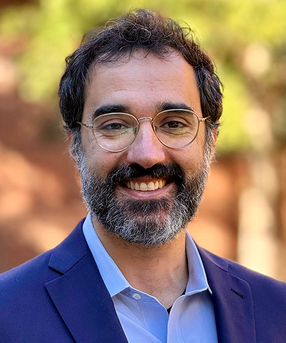
Teddy Svoronos, PhD ’16, is a Senior Lecturer in Public Policy at the Harvard Kennedy School (HKS), where he teaches courses on quantitative methods, generative AI, and evidence-based policy. His work focuses on leveraging technology to scale small, interactive classrooms to learners around the world. His research involves the intersection of pedagogy, technology and the adoption of evidence.
Teddy is a co-founder of Teachly, a web application focused on creating effective and inclusive learning environments, and PingPong, a platform leveraging generative AI to create custom bots and other unique learning experiences. At HKS, he serves as the Faculty Lead for the Evidence for Decisions area of HKS’ online Public Leadership Credential and the school's Faculty Liaison for Pedagogy and Digital Learning. Teddy received his PhD in health policy from Harvard University and his master’s degree in public health from Columbia University.
Marinka Zitnik
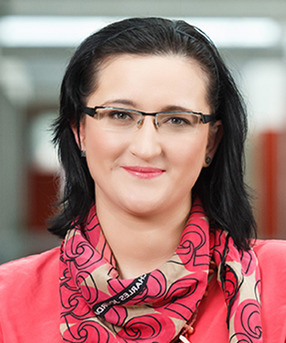
Marinka Zitnik is an Associate Professor of Biomedical Informatics at Harvard Medical School, Associate Faculty at Kempner Institute for the Study of Natural and Artificial Intelligence at Harvard University, and Associate Member at Broad Institute of MIT and Harvard. Zitnik investigates foundations of AI that contribute to the scientific understanding of medicine and therapeutic design, eventually enabling AI to learn and innovate on its own. Her research won best paper and research awards, including the Kavli Fellowship of the National Academy of Sciences, Kaneb Fellowship award at Harvard Medical School, NSF CAREER Award, awards from the International Society for Computational Biology, International Conference in Machine Learning, Bayer Early Excellence in Science, Amazon Faculty Research, Google Faculty Research, Roche Alliance with Distinguished Scientists, and Sanofi iDEA-iTECH Award. Zitnik founded Therapeutics Data Commons, a global open-science initiative to access and evaluate AI across stages of development and therapeutic modalities, and she served as the faculty lead of the AI4Science initiative. She is the recipient of the 2022 Young Mentor Award at Harvard Medical School.
Evelyn Hu
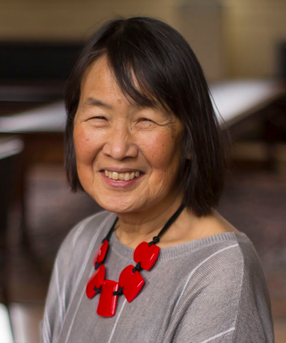
Evelyn Hu is the Tarr-Coyne Professor of Applied Physics and Electrical Engineering, and a professor of Arts and Sciences at the John A. Paulson School of Engineering and Applied Sciences at Harvard. She also serves as a co-director of the Harvard Quantum Initiative. Her research involves the design, fabrication, and study of nanoscale photonic devices and emitters, which may be the basis of new quantum mechanical bits, with applications for new quantum information technologies. Hu received her PhD in Physics from Columbia University in 1975 and her BA in physics from Barnard College in 1969.
Prior to her appointment at Harvard, she was the scientific co-director of the California NanoSystems Institute, and a professor in the Departments of Electrical and Computer Engineering and Materials at the University of California, Santa Barbara. She also worked at AT&T Bell Laboratories, developing microfabrication and nanofabrication techniques for high-performance superconducting and semiconducting devices and circuits. She is a member of the National Academy of Sciences, the National Academy of Engineering, the American Academy of Arts and Sciences, and the Academica Sinica of Taiwan. She was named a Harvard College Professor (2015-2020), has been named the Capers and Marion McDonald Award for Excellence in Mentorship and Advising, is a recipient of an NSF Distinguished Teaching Scholar award, and an AAAS Lifetime Mentor Award. She was awarded the 2020 Andrew Grove Award given by the IEEE, the 2021 IEEE/RSE James Clerk Maxwell Medal, and the 2026 APS Mildred Dresselhaus Prize in Nanoscience or Nanomaterials. She holds honorary doctorates from the University of Glasgow, Heriot-Watt University, Hong Kong University of Science and Technology, the University of Notre Dame, ETH Zurich, and the City University of Hong Kong.
Grzegorz Ekiert
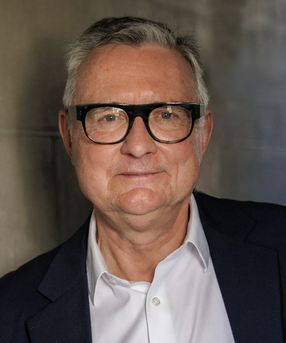
Grzegorz Ekiert (MA Jagiellonian University, PhD Harvard University) is the Laurence A. Tisch Professor of Government at Harvard University, Director of the Davis Center for Russian and Eurasian Studies, and a Senior Scholar at the Harvard Academy for International and Area Studies. He served as Director of the Minda de Gunzburg Center for European Studies at Harvard University (2012–2024) and Chair of the Social Studies undergraduate concentration in the Faculty of Arts and Sciences (2000–2006).
His research and teaching focus on comparative politics, regime change and democratization, civil society and social movements, and the politics and societies of Eastern Europe. He is the author or editor of several books and special issues of academic journals, including:
- Ruling by Other Means: State-Mobilized Movements (co-edited with Elizabeth J. Perry and Yan Xiaojun), Cambridge University Press, 2020
- Capitalism and Democracy in Central and Eastern Europe: Assessing the Legacy of Communist Rule (co-edited with Stephen Hanson), Cambridge University Press, 2003
- Rebellious Civil Society: Popular Protest and Democratic Consolidation in Poland (co-authored with Jan Kubik), University of Michigan Press, 1999
- The State Against Society: Political Crises and Their Aftermath in East Central Europe, Princeton University Press, 1996
His articles have appeared in numerous social science journals in the United States, Europe, and Asia, as well as in edited volumes. He served as a member of the advisory board of the Wissenschaftszentrum Berlin für Sozialforschung (2016–2024) and as External Examiner in Politics, Public Administration, and Global Studies at the University of Hong Kong (2012–2018). He is a member of several advisory and editorial boards in social science research institutions, journals, and international NGOs.
Rebecca Henderson
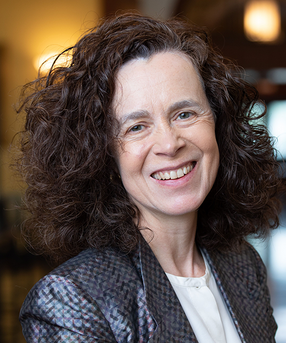
Rebecca Henderson, PhD ’88, is one of 25 University Professors at Harvard, a research fellow at the National Bureau of Economic Research, and a fellow of both the British Academy and of the American Academy of Arts and Sciences. She also has more than 25 years of major public board experience. Rebecca’s research explores the degree to which the private sector can play a major role in building a more sustainable economy. Her publications include Accelerating Energy Innovation: Insights from Multiple Sectors (University of Chicago Press), Leading Sustainable Change: An Organizational Perspective (Oxford University Press) and Political Economy and Justice (University of Chicago Press). She is also the author of Reimagining Capitalism in a World on Fire which was shortlisted for the FT/McKinsey 2020 Business Book of the Year Award.
Reconnect with friends, colleagues, and mentors at Harvard Griffin GSAS Alumni Day on Saturday, April 18, 2026. This annual event brings together alumni, faculty, students, and friends to participate in conversations with some of the world’s leading scholars, engage with alumni across various disciplines, and hear from Dean Emma Dench. Between talks and activities, network with your fellow alumni and recapture the magic of being back on campus with friends, both old and new.
Full program and session details will be available in late February. Registration will open in early March 2026.
Registration Fees
- Harvard Griffin GSAS Alumni and Guests: $65
- Recent Harvard Griffin GSAS Graduate (’21-’24): $25
- 2025 Harvard Griffin GSAS Graduate: Free
Tentative Schedule
Saturday, April 18
Events will take place at Emerson Hall and the Harvard Faculty Club in Cambridge. All times are in Eastern Time.
8:30 a.m.–3:30 p.m.
Check-In and Registration
8:30 a.m.
Continental Breakfast
Harvard Faculty Club
9:45 a.m.–10:30 a.m.
Welcome and Conversation with the Dean
Emerson Hall
10:30 a.m.–11:45 a.m.
Keynote Panel: The Transformative Impact of AI on Medicine, Education, and the Economy
Jason Furman, PhD ’04, Aetna Professor of the Practice of Economic Policy, jointly at Harvard Kennedy School (HKS) and the Department of Economics at Harvard University
Teddy Svoronos, PhD ’16, Senior Lecturer in Public Policy at the Harvard Kennedy School; co-Founder of Teachly and PingPong
Marinka Zitnik, Associate Professor in the Department of Biomedical Informatics at Harvard Medical School, Associate Faculty at the Kempner Institute for the Study of Natural and Artificial Intelligence at Harvard University, Associate Member at the Broad Institute of MIT and Harvard, and Affiliated Faculty at the Harvard Data Science Initiative.
Emerson Hall
11:45 a.m.
Celebrating Milestone Anniversaries
Honoring alumni celebrating 50, 25, or 10 years since their graduation from Harvard Griffin GSAS.
Emerson Hall
Noon–1:30 p.m.
Lunch
Harvard Faculty Club
Afternoon Sessions with Harvard Faculty and Harvard Griffin GSAS Alumni
1:45 p.m.–3:00 p.m.
Session 1A: Opportunities for Quantum Technologies in an Imperfect World
Evelyn Hu, Tarr-Coyne Professor of Applied Physics and of Electrical Engineering, Harvard University; co-Director of the Harvard Quantum Initiative
This interactive talk will provide a few insights into Hu's research program, as a window into some of the quantum activities here at Harvard. Interestingly, much of Hu's research explores the possibilities of defective materials that, strangely enough, can serve as the “information bearers” of new quantum technologies.
Emerson Hall
Session 1B: Can Liberal Democracy Survive the Second "Great Transformation"?
Grzegorz Ekiert, PhD ’91, Laurence A. Tisch Professor of Government at Harvard University and senior scholar at the Harvard Academy for International and Area Studies
3:15 p.m.–4:30 p.m.
Session 2A: Reweaving ourselves: Learning to lead with love and power
Rebecca Henderson, PhD ’88, John and Natty McArthur University Professor, Harvard University
What kind of world could we build if we let ourselves believe that humans are not only selfish, greedy, and status-seeking but also cooperative, kind, and joyful? If we prioritized learning to build relationships—with ourselves, with each other, and with the natural world, in addition to implementing technical fixes and policy solutions? In this talk, Henderson will explore what it might mean to lead with love and power—and why it might make all the difference.
Session 2B
Speaker and session details forthcoming
Emerson Hall
4:45 p.m.–6:00 p.m.
Closing Reception
Harvard Faculty Club
Questions about this event? Please contact the Harvard Griffin GSAS Office of Alumni Relations.
Harvard University and the Graduate School Alumni Association encourage people with disabilities to participate in their programs and activities. If you anticipate needing any type of accommodation or have questions about the physical access provided, please let us know in advance by emailing gsaa@fas.harvard.edu.
Locations & Parking
Parking for Alumni Day is available at the Broadway Garage located at 7 Felton St, Cambridge, MA 02138. Please inform the parking attendant that you are attending the Harvard Griffin GSAS Alumni Day event.
Emerson Hall
29 Quincy St, Cambridge, MA 02138
Harvard Faculty Club
20 Quincy St, Cambridge, MA 02138
Speakers
(in order of appearance on schedule, some bios still forthcoming)
Emma Dench

Emma Dench is the Dean of the Harvard Kenneth C. Griffin Graduate School of Arts and Sciences, and McLean Professor of Ancient and Modern History and of the Classics. A Roman historian and classicist who holds appointments in the Departments of the Classics and of History, Dench was appointed dean in 2018, after serving as interim dean the year prior.
During her term as dean, Dench has worked to enhance the quality of the graduate student academic and personal experience. The Advising Project (TAP), which she spearheaded, works to enhance the advising of graduate students by identifying and communicating best practices in advising and offering mentoring training to faculty and mentoring-up training to students. Dench expanded on this work by engaging a group of faculty in the GSAS Admissions and Graduate Education working group, which considered what PhD education should look like in the 21st century. Harvard Griffin GSAS is now implementing their recommendations. Dench also makes student wellbeing a focus of her deanship and chaired the working group for graduate and professional students as part of the University’s task force on managing student mental health.
Since joining Harvard in 2007, Dench has earned a Harvard College Professorship in recognition of “outstanding contributions to undergraduate teaching, mentoring, and advising,” a John R. Marquand Award for Exceptional Advising and Counseling, and an Everett Mendelsohn Excellence in Mentoring Award for her mentorship of graduate students. Regarding her academic research, Dench’s most recent book, Empire and Political Cultures in the Roman World, reviews a hundred years of scholarship to identify how empire transformed the Roman world, and advances a new theory of how the empire worked and was experienced. She has authored From Barbarians to New Men: Greek, Roman, and Modern Perceptions of Peoples from the Central Apennines, and Romulus’ Asylum: Roman Identities from the Age of Alexander to the Age of Hadrian. Dench has also published articles and reviews on many aspects of classical antiquity, including pre-Roman and Roman Italy, the workings of the Roman Empire and identity. Her current research explores the idea and practice of Barbarian identity, as well as divine interaction in the Roman imperial world, and life and leadership lessons from Rome.
Dench grew up near Stratford-upon-Avon and studied at Wadham College where she was awarded a double first in Classics. She also studied at St. Hugh’s College, Oxford, where she obtained her DPhil in Ancient History. She has taught classics and ancient history at Birbeck College, University of London, she served as a Rome Scholar and a Hugh Last Fellow at the British School at Rome, and she was a member of the School of Historical Studies at the Institute for Advanced Study. She was also a visiting professor of the Classics and of History at Harvard, a Loeb Classical Library Foundation Fellow, and a Visiting Professor of Business Administration at the Harvard Business School. In 2016, she delivered the prestigious JH Gray Lectures at the University of Cambridge.
Jason Furman

Jason Furman, PhD ’04, is the Aetna Professor of the Practice of Economic Policy jointly at Harvard Kennedy School (HKS) and the Department of Economics at Harvard University. He is also a nonresident senior fellow at the Peterson Institute for International Economics. Furman engages in public policy through research, writing, and teaching in a wide range of areas, including US and international macroeconomics, fiscal policy, labor markets, and competition policy. He co- teaches Ec10 “Principles of Economics,” the largest course at Harvard University.
Previously, Furman served for eight years as a top economic adviser to President Obama, including as the 28th Chairman of the Council of Economic Advisers from August 2013 to January 2017, serving as both President Obama’s chief economist and a member of the cabinet. During this time, Furman played a major role in most of the major economic policies of the Obama Administration. Furman also served under President Clinton.
Furman is a member of numerous organizations, including the Council on Foreign Relations, the Group of Thirty, and the Economic Strategy Group. He also serves as a Trustee of the Russell Sage Foundation and on the advisory boards for the Brookings Papers on Economic Activity, the Bund Summit, the Hamilton Project, and the Washington Center for Equitable Growth.
In addition to articles in scholarly journals and periodicals, Furman is a regular contributor to the New York Times and Project Syndicate and the editor of two books on economic policy. Furman holds a PhD in economics from Harvard University.
Teddy Svoronos

Teddy Svoronos, PhD ’16, is a Senior Lecturer in Public Policy at the Harvard Kennedy School (HKS), where he teaches courses on quantitative methods, generative AI, and evidence-based policy. His work focuses on leveraging technology to scale small, interactive classrooms to learners around the world. His research involves the intersection of pedagogy, technology and the adoption of evidence.
Teddy is a co-founder of Teachly, a web application focused on creating effective and inclusive learning environments, and PingPong, a platform leveraging generative AI to create custom bots and other unique learning experiences. At HKS, he serves as the Faculty Lead for the Evidence for Decisions area of HKS’ online Public Leadership Credential and the school's Faculty Liaison for Pedagogy and Digital Learning. Teddy received his PhD in health policy from Harvard University and his master’s degree in public health from Columbia University.
Marinka Zitnik

Marinka Zitnik is an Associate Professor of Biomedical Informatics at Harvard Medical School, Associate Faculty at Kempner Institute for the Study of Natural and Artificial Intelligence at Harvard University, and Associate Member at Broad Institute of MIT and Harvard. Zitnik investigates foundations of AI that contribute to the scientific understanding of medicine and therapeutic design, eventually enabling AI to learn and innovate on its own. Her research won best paper and research awards, including the Kavli Fellowship of the National Academy of Sciences, Kaneb Fellowship award at Harvard Medical School, NSF CAREER Award, awards from the International Society for Computational Biology, International Conference in Machine Learning, Bayer Early Excellence in Science, Amazon Faculty Research, Google Faculty Research, Roche Alliance with Distinguished Scientists, and Sanofi iDEA-iTECH Award. Zitnik founded Therapeutics Data Commons, a global open-science initiative to access and evaluate AI across stages of development and therapeutic modalities, and she served as the faculty lead of the AI4Science initiative. She is the recipient of the 2022 Young Mentor Award at Harvard Medical School.
Evelyn Hu

Evelyn Hu is the Tarr-Coyne Professor of Applied Physics and Electrical Engineering, and a professor of Arts and Sciences at the John A. Paulson School of Engineering and Applied Sciences at Harvard. She also serves as a co-director of the Harvard Quantum Initiative. Her research involves the design, fabrication, and study of nanoscale photonic devices and emitters, which may be the basis of new quantum mechanical bits, with applications for new quantum information technologies. Hu received her PhD in Physics from Columbia University in 1975 and her BA in physics from Barnard College in 1969.
Prior to her appointment at Harvard, she was the scientific co-director of the California NanoSystems Institute, and a professor in the Departments of Electrical and Computer Engineering and Materials at the University of California, Santa Barbara. She also worked at AT&T Bell Laboratories, developing microfabrication and nanofabrication techniques for high-performance superconducting and semiconducting devices and circuits. She is a member of the National Academy of Sciences, the National Academy of Engineering, the American Academy of Arts and Sciences, and the Academica Sinica of Taiwan. She was named a Harvard College Professor (2015-2020), has been named the Capers and Marion McDonald Award for Excellence in Mentorship and Advising, is a recipient of an NSF Distinguished Teaching Scholar award, and an AAAS Lifetime Mentor Award. She was awarded the 2020 Andrew Grove Award given by the IEEE, the 2021 IEEE/RSE James Clerk Maxwell Medal, and the 2026 APS Mildred Dresselhaus Prize in Nanoscience or Nanomaterials. She holds honorary doctorates from the University of Glasgow, Heriot-Watt University, Hong Kong University of Science and Technology, the University of Notre Dame, ETH Zurich, and the City University of Hong Kong.
Grzegorz Ekiert

Grzegorz Ekiert (MA Jagiellonian University, PhD Harvard University) is the Laurence A. Tisch Professor of Government at Harvard University, Director of the Davis Center for Russian and Eurasian Studies, and a Senior Scholar at the Harvard Academy for International and Area Studies. He served as Director of the Minda de Gunzburg Center for European Studies at Harvard University (2012–2024) and Chair of the Social Studies undergraduate concentration in the Faculty of Arts and Sciences (2000–2006).
His research and teaching focus on comparative politics, regime change and democratization, civil society and social movements, and the politics and societies of Eastern Europe. He is the author or editor of several books and special issues of academic journals, including:
- Ruling by Other Means: State-Mobilized Movements (co-edited with Elizabeth J. Perry and Yan Xiaojun), Cambridge University Press, 2020
- Capitalism and Democracy in Central and Eastern Europe: Assessing the Legacy of Communist Rule (co-edited with Stephen Hanson), Cambridge University Press, 2003
- Rebellious Civil Society: Popular Protest and Democratic Consolidation in Poland (co-authored with Jan Kubik), University of Michigan Press, 1999
- The State Against Society: Political Crises and Their Aftermath in East Central Europe, Princeton University Press, 1996
His articles have appeared in numerous social science journals in the United States, Europe, and Asia, as well as in edited volumes. He served as a member of the advisory board of the Wissenschaftszentrum Berlin für Sozialforschung (2016–2024) and as External Examiner in Politics, Public Administration, and Global Studies at the University of Hong Kong (2012–2018). He is a member of several advisory and editorial boards in social science research institutions, journals, and international NGOs.
Rebecca Henderson

Rebecca Henderson, PhD ’88, is one of 25 University Professors at Harvard, a research fellow at the National Bureau of Economic Research, and a fellow of both the British Academy and of the American Academy of Arts and Sciences. She also has more than 25 years of major public board experience. Rebecca’s research explores the degree to which the private sector can play a major role in building a more sustainable economy. Her publications include Accelerating Energy Innovation: Insights from Multiple Sectors (University of Chicago Press), Leading Sustainable Change: An Organizational Perspective (Oxford University Press) and Political Economy and Justice (University of Chicago Press). She is also the author of Reimagining Capitalism in a World on Fire which was shortlisted for the FT/McKinsey 2020 Business Book of the Year Award.

